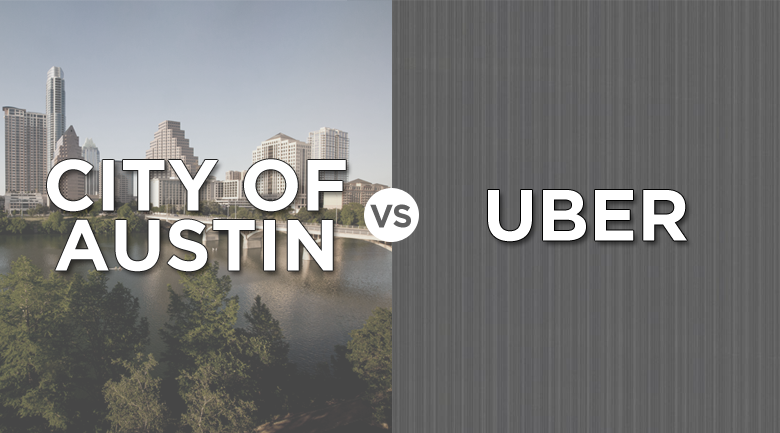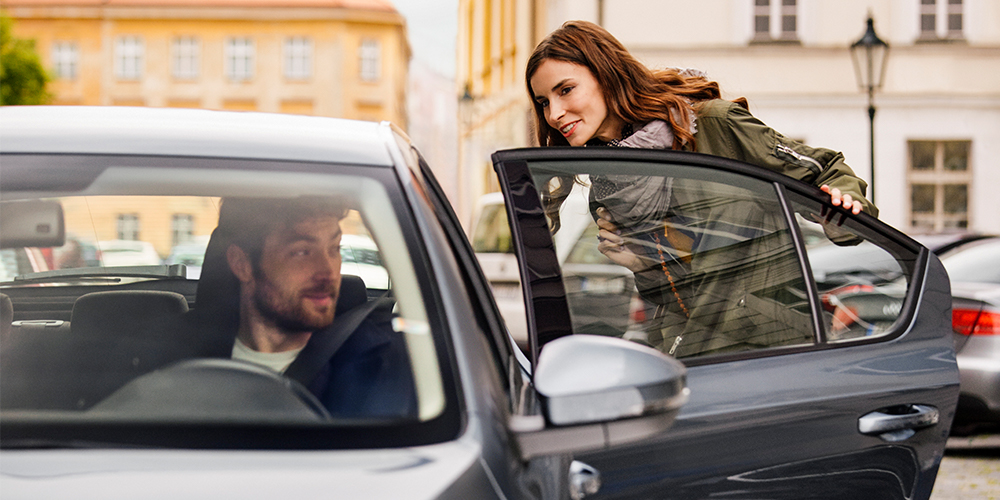#KeepAustinUber: Will the company’s pushback against new city regulations work?
Nearly a year after the City of Austin initially approved ride-hailing services like Uber and Lyft, new city regulations threaten their future operation.
To be clear, Austin City Council isn’t looking to outright ban Uber. But the company has made it clear that the proposed changes – up for vote on Nov. 16 – could drive Uber out.
![]()
Designed to treat the popular app services more like traditional cab companies, the most controversial part of the proposed legislation is a $1 fee per ride to pay for fingerprint background checks to replace Uber’s current name background checks.
Uber just sent out an email inviting driver partners to march over to City Hall on Monday morning, incentivizing people to skip parking by taking a discounted Uber (the fare will be waived up to $20).
Uber’s very public reaction
The company has been vocal in its disapproval, directly calling out Council Member Ann Kitchens in a TV and radio ad campaign that has Austinites expressing their support of the company:
Why the finger pointing? Kitchens is the chair of the Mobility Committee who opened up the debate this fall.
And if you’ve noticed horse-drawn carriages strolling the streets of downtown Austin lately, they’re not around for the holiday season. In another recent PR stunt, Uber has been offering $50 horse and buggy rides on Thursday evenings to symbolize how the proposed regulations would impact its operation.
Coined the “KITCHEN” option on the app, Uber Texas spokesperson Debbee Hancock explained the reasoning behind the service: “Uber has improved mobility for half a million people in Austin, but Council Member Kitchen’s proposal would take Austin backwards and eliminate this reliable transportation option.”
What’s happened in other cities?
Fingerprint regulations aren’t a new challenge for the brand. They’ve popped up in different markets, including Houston and San Antonio in Texas and Broward County in Florida.
But the track record shows that Houston is the only city that Uber has remained in that has imposed the change.
While it’s been entertaining to watch the drama between Uber and the City Council unfold, the question is whether the heavy public pressure will have any effect on helping Uber get its way in Austin.
#Uber
Staff Writer Larisa Manescu cringes at the question "Where are you from?" because it's a long story, but it's one she loves to share if you ask her. Her interests include storytelling, social justice and choreographed group dance classes.









































SammyR98
November 16, 2015 at 2:49 pm
There is no need to continually regulate Uber different than taxi companies. If we are requiring fingerprint background checks for cab drivers, we should require it for Uber drivers. If Uber is correct that the fingerprint checks are not needed, we should remove the need for cab drivers to abide by the same regulations.
Robert
November 16, 2015 at 4:11 pm
First off here are some facts. The city council wants 1% of all the drivers incomes. The city also wants every driver to go through a fingerprint background check. They are two separate things. UBER/LYFT are in agreement with the fees. It is the fingerprint check that is where there is disagreement. Fingerprinting interfers with these companies business models. Ex Craigslist would not be successful if you needed a background check to use. Ann Kitchen has received money from the taxi companies in Austin as well. The knowledge that UBER leaves cities that try and impose fingerprinting is fact enough that Ann Kitchen is trying to remove uber from Austin. The idea that a taxi and an uber are on different levels of safety are absurd. Uber does a national background check that the taxis don’t do. Also the council is refusing to be aware of the other safety features built in. GPS tracking of every ride, driver, and costumer. Every costumer also gets a picture of their driver and his/her car before they even arrive. This is a secret political agenda hiding behind the word safety.
ray
November 16, 2015 at 7:02 pm
They want that 1% from the drivers because since dui’s and dwi’s are down. They not making any tax money off of that. Which I think it’s dumb for them to tax the drivers.
Pingback: Why I'm glad Proposition 1 failed in Austin [editorial] - The American Genius